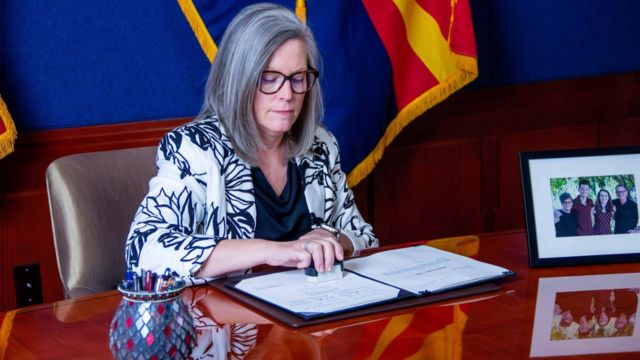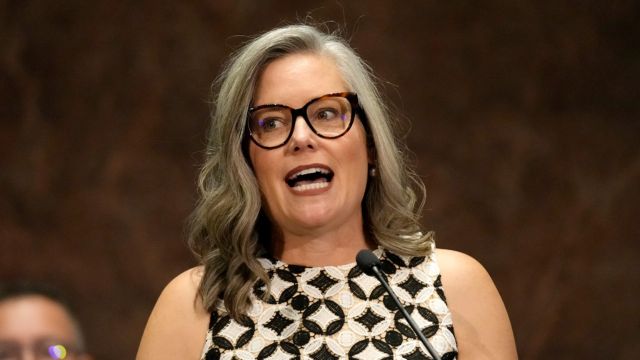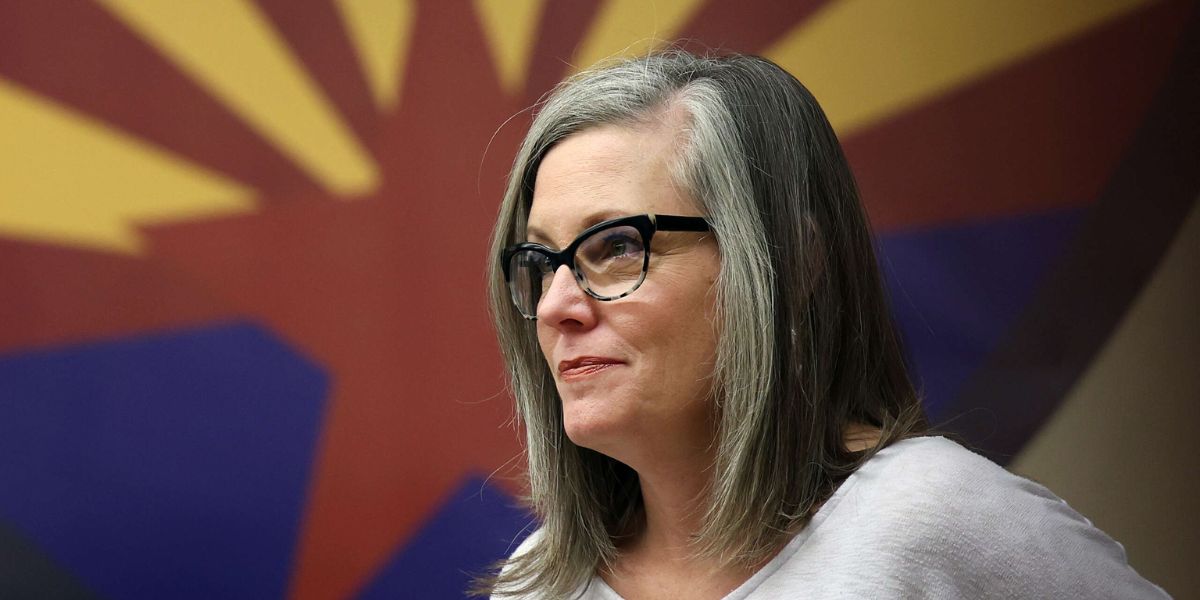Governor Hobbs Enacts Bill Empowering Homeowners to Remove Racist Property Restrictions
Phoenix — On Friday, Arizona Governor Katie Hobbs signed a bill enabling landowners to get rid of this unenforceable remnant of the state’s racist history.
Documents that Erin Scharff and her husband received after purchasing their central Phoenix house revealed the deed limitation.
Arizona State University law professor Scharff said, “They’re hard words to read,” during an interview at her dining room table.
Scharff read to me the “Declaration of Restrictions” paragraph XI:
“None of these lots, nor any portion of them, may ever be purchased, leased, rented, or occupied by individuals who are Mexican, Japanese, Chinese, Mexican-Indian, American-Indian, Korean, Malay, Filipino, Negro, Hindu, or of any other race other than white or Caucasian, or whose spouse is one of these individuals.

However, nothing in this article should be interpreted as forbidding the use of domestic helpers on designated property, regardless of their race or duration of stay, or as a requirement of their employment on the property where they work.”
Scharff’s summary in a nutshell: “Unless you work for a white person, nobody gets to live here.”
SEE MORE: Migrants Arrested in Border ‘Riot’ Released by El Paso Judge, Reports Say
A little type declaration that seems to be stamped on the paper appears at the top of the “Declaration of Restrictions,” and it reads, “Covenants and restrictions based upon race, color, religion, sex, handicap, familial status, or national origin are deleted.” When the statement was inserted is unclear. “These are not nice words.”
At twelve, Scharff moved to the Valley with her family from Louisiana. “I understood that segregation, when I was growing up, was something that happened elsewhere,” Scharff remarked.
“Seeing that on our land and keeping in mind how recently this was true, as well as how much that influences who can own real estate here and how our communities and schools have grown… Above all, reading it made me realize how awful these words are.”
The law gives shape. There was significant bipartisan support in the state Legislature for the bill that Governor Hobbs signed late last week.

It permits landowners to alter their deeds and petition the county recorder’s office to have discriminatory covenants removed.
The NAACP Arizona Conference is the one that proposed the law, which contains an optional form that a homeowner can utilize to request a deed change.
Ninety days following the conclusion of the current legislative session, the bill will become law.
Limitations go back to the early 1900s. Covenants, which are discriminatory deed restrictions, were prevalent across the Valley in the early 1900s.
In 1948, the U.S. Supreme Court declared that covenants imposing racial restrictions were unenforceable. In 1968, the federal Fair Housing Act outlawed discriminatory covenants.
The professor is against the law. ASU A book on discriminatory deed limitations in the Phoenix region is being researched by Professor Rashad Shabazz.
He is opposed to that past being erased.
SEE MORE: Texas Judge Permits Release of Migrants Detained Following Border Stampede
“I reject it,” he declared.
“It clarifies the reasons behind the appearance of our towns, neighborhoods, and cities… Keeping it serves as a memento of our journey to this point.”
Shabazz said that federal housing policy maintained the existence of the discriminatory covenants.
According to Shabazz, “financially stable” locations were selected by the Federal Housing Administration, which funded mortgages and developed Phoenix neighborhoods like Scharff’s in the 1950s.
“The federal government used the racially restrictive covenants as the marker of what financial stability is,” he stated.
“Public policy can be quite beneficial in this situation by giving us a way to change the past, but it can also be very harmful… We can offer incentives for desegregation if we can offer incentives for segregation.”










